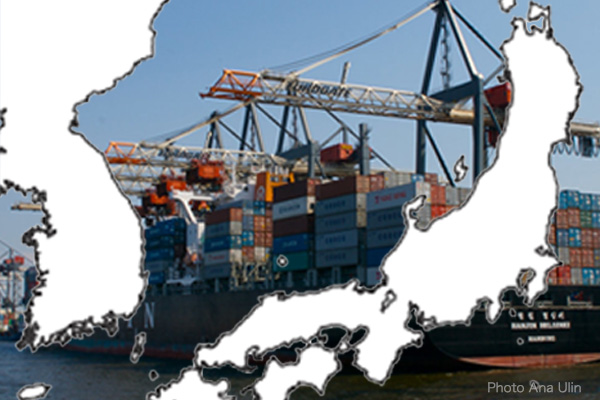A Japan-South Korea director-general level dialogue on export control next week is attracting attention.
The recent entanglement over the General Security of Military Information Agreement between Japan and South Korea represented South Korea’s fuss over nothing. Initially, South Korea’s Moon Jae In government offered to terminate GSOMIA to counter Japan’s earlier action to toughen export control on South Korea, expecting that the United States would work on Japan as well as South Korea to maintain the defense intelligence sharing agreement in a manner to bring about Japan’s retraction of the toughened export control. Seoul has striven to link GSOMIA and export control that are dimensionally separated.
Seoul insisting export control “dialogue” as “negotiation”
While being fully aware of Seoul’s expectation, Tokyo has persistently explained that the two matters cannot be related to each other. Consequently, Korea’s expectation was betrayed as Washington viewed the termination of GSOMIA as threatening U.S. security and stepped up pressure on Seoul. The Moon government was pressured into choosing to maintain GSOMIA. Its problem then was how to avoid domestic criticisms against the choice and save its face. The key point was its domestic explanation that the Moon government won Japan’s concession on the export control issue in exchange for its withdrawal of the earlier decision to terminate GSOMIA.
For example, Seoul reworded the director-general level dialogue as “negotiation” in a bid to indicate that Japan has made a concession. The rewording is designed to allow the government to tell South Korean people that it would negotiate with Japan to get the toughened export control retracted. Unlike “negotiation” between two countries, “dialogue” represents the exchange of views to deepen mutual understanding. The export control dialogue is designed for deepening mutual understanding rather than negotiating Japan’s retraction of the toughened export control. As a matter of course, any export control decision is internationally understood as up to each country’s decision and unsuitable for negotiations.
Could Japan modify its toughened export control?
How will the export control dialogue develop in the future? Could Japan’s toughened export control be modified or retracted?
As a matter of course, South Korea can freely request the retraction at the dialogue. However, the ball is in the South Korean court. Unless South Korea improves its export control, the situation will remain unchanged.
South Korea’s export control arrangements are vulnerable, with the number of export inspectors extremely limited. Export control law in South Korea is more defective than in other countries. An increase in the number of export inspectors would not be enough. Inspections should be improved in line with the increase in the number. Export control law should be improved to become more effective. These measures should be naturally required to achieve the objective of export control. Next, the results of these measures should be recognized as sufficient by the Japanese government. The dialogue would be used for such recognition. The issue may not be resolved at any single round of the dialogue.
Based on the recognition, the Japanese government will decide whether to modify its export control. Such decision may change the treatment of South Korea.
It is important to prevent the export control issue from being linked not only to GSOMIA but also to the issue of former wartime Korean workers in Japan. Tokyo must clarify that its toughened export control is not a counter to Seoul’s inaction over the South Korean Supreme Court’s order for Japanese compensations for former wartime Korean workers. Such clarification is indispensable for the export control issue to be internationally understood.
Masahiko Hosokawa is a special professor at Chubu University and a former director-general of the Trade Control Department at Japan’s Ministry of Economy, Trade and Industry.


